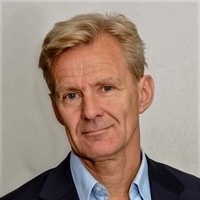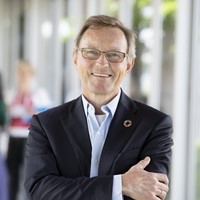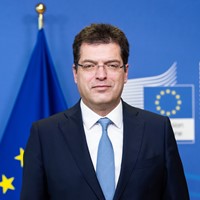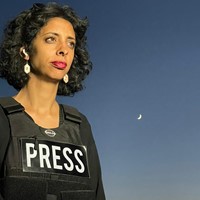




David Harland
Executive Director
Biography
Organisation
Centre for Humanitarian Dialogue
NGO
Speaker session
Soaring humanitarian needs and limited resources: Engaging emerging donors and new sources of financing
Auditorium
This session discusses a new “humanitarian narrative” in which humanitarian aid is framed as an investment and a common good. This narrative is framed by the ever-growing gap between resources for humanitarian assistance and humanitarian needs. . How new sources of funding (i.e. development and climate funding) can be mobilized will be discussed. In this context, the session will also debate how to get more concrete commitment from aid organizations to provide assistance in a more efficient and effective manner, working together much stronger and distributing tasks more systematically in line with their core strengths. Finally, the session will seek the support of minimum benchmarks for national humanitarian budgets with the objective of additional and more balanced humanitarian funding.

Diana Janse
State Secretary for International Developement Cooperation
Biography
Diana Janse is the Swedish State Secretary for International Development Cooperation. Before taking up this position, she was a Senior Fellow at the Stockholm Free World Forum (Frivärld) between 2021-2022. During her career as a diplomat, she has served in Afghanistan, Russia and in Foreign Minister Carl Bildt's cabinet. She has also served as ambassador to Mali (2019-2021) Georgia (2010-2014) and Lebanon/Syria (2014-2015). From 2015 to 2019, she was foreign policy advisor and international director at the Moderate Party. In 2010, her book "A Piece of My Heart I Leave Behind" was published about her experiences in Afghanistan. Ms. Janse holds two degrees from Uppsala University, a Masters in Political Science and a Bachelor in Russian Language and Literature.
Organisation
Swedish Ministry for Foreign Affairs
Member State authority
Speaker session
Soaring humanitarian needs and limited resources: Engaging emerging donors and new sources of financing
Auditorium
This session discusses a new “humanitarian narrative” in which humanitarian aid is framed as an investment and a common good. This narrative is framed by the ever-growing gap between resources for humanitarian assistance and humanitarian needs. . How new sources of funding (i.e. development and climate funding) can be mobilized will be discussed. In this context, the session will also debate how to get more concrete commitment from aid organizations to provide assistance in a more efficient and effective manner, working together much stronger and distributing tasks more systematically in line with their core strengths. Finally, the session will seek the support of minimum benchmarks for national humanitarian budgets with the objective of additional and more balanced humanitarian funding.

Dilara Fuchs
Portfolio Manager
Organisation
KfW Development Bank
Other
Speaker session
Soaring humanitarian needs and limited resources: Engaging emerging donors and new sources of financing
Auditorium
This session discusses a new “humanitarian narrative” in which humanitarian aid is framed as an investment and a common good. This narrative is framed by the ever-growing gap between resources for humanitarian assistance and humanitarian needs. . How new sources of funding (i.e. development and climate funding) can be mobilized will be discussed. In this context, the session will also debate how to get more concrete commitment from aid organizations to provide assistance in a more efficient and effective manner, working together much stronger and distributing tasks more systematically in line with their core strengths. Finally, the session will seek the support of minimum benchmarks for national humanitarian budgets with the objective of additional and more balanced humanitarian funding.











